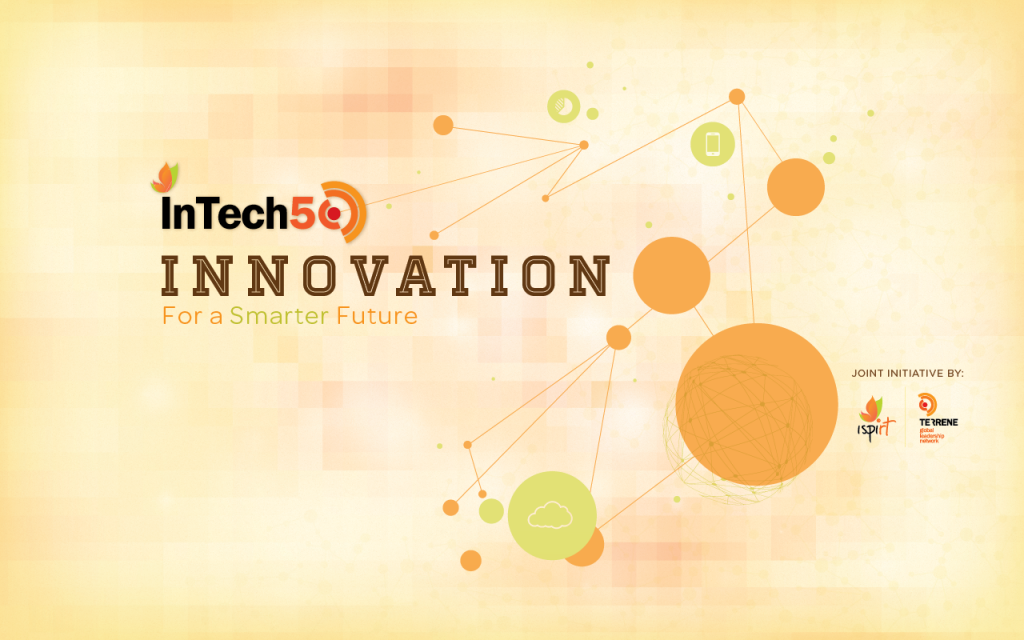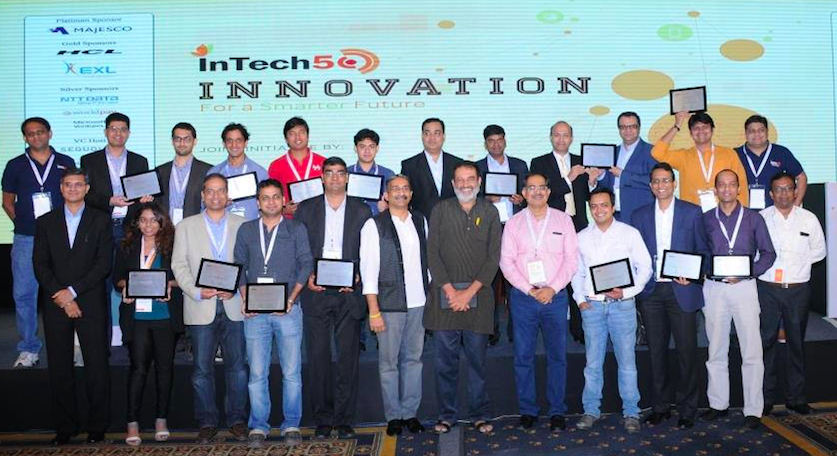After a gap of 10 years, I recently returned to Bangalore to attend InTech50. The excitement started from the get go when I was flown from Delhi to Bangalore by an all-female Indigo cockpit – itself a reflection of our fast changing times.
 The age of tech startups in India has dawned. With 3500+ registered startups & counting, India is well poised to become the second largest startup hub in the world (after the US) by the end of this decade. The quality of product design & engineering has also increased since entrepreneurship has become a career of choice. Top notch talent including IIT engineers and IIM MBAs are no longer flocking to high paying corporate jobs. A significant number are taking the leap to build new technology products. At the same time a broader ecosystem of venture capitalists and corporate partners have emerged, supported by institutions like NASSCOM and iSPIRT – which have tirelessly worked to galvanize stakeholders and unlock the value chain. None of this “software product industry architecture” visibly existed when I last left India 8 years ago!
The age of tech startups in India has dawned. With 3500+ registered startups & counting, India is well poised to become the second largest startup hub in the world (after the US) by the end of this decade. The quality of product design & engineering has also increased since entrepreneurship has become a career of choice. Top notch talent including IIT engineers and IIM MBAs are no longer flocking to high paying corporate jobs. A significant number are taking the leap to build new technology products. At the same time a broader ecosystem of venture capitalists and corporate partners have emerged, supported by institutions like NASSCOM and iSPIRT – which have tirelessly worked to galvanize stakeholders and unlock the value chain. None of this “software product industry architecture” visibly existed when I last left India 8 years ago!
InTech50 was a great example of how far we’ve come. 50 exciting B2B startups were showcased across key enterprise spaces – big data analytics, security & infrastructure, enterprise mobility & collaboration, compliance & HR management, and industry specific solutions in finance, manufacturing, retail and health. Across the board, the teams were impressive, in that the founders reflected original thinking & IP, and made their pitches with both passion and data. A few were established companies like Qubole, FreshDesk and Druva; others were earlier in their journeys. Some of my favorites were: Reverie, a “language gateway” that helps businesses localize their products across linguistic contexts; Vymo a simplified Saleforce-like tool for mobile foot force effectiveness; Clary5, a cross-product and cross-channel enterprise fraud management platform targeting financial institutions; low overhead & easy-to-use enterprise content & collaboration tools like Tydy and FrameBench; and hyperlocal retail analytics software like Nifty Window and NowFloats that bring online-grade data capabilities to offline retailers
 The event saw active participation from industry CIOs – both global and domestic – who provided rich and relevant perspectives to startups. We heard from the media, hardware & software technology, telecom, general & speciality insurance, and banking sectors. The program sparked rich interactions that highlighted core industry needs & product gaps, provided feedback to early stage concepts, and introduced prospective customers and operational partners to startups much in need of them.
The event saw active participation from industry CIOs – both global and domestic – who provided rich and relevant perspectives to startups. We heard from the media, hardware & software technology, telecom, general & speciality insurance, and banking sectors. The program sparked rich interactions that highlighted core industry needs & product gaps, provided feedback to early stage concepts, and introduced prospective customers and operational partners to startups much in need of them.
Two interesting models of deeper corporate engagement with startups were explored. First, the role of corporates as enterprise startup customers. Here, given reputational risks involved, CIOs are more likely to test new products internally or with non-core services before extending them to customer facing or core operations. Not surprisingly, data security was highlighted as a dominant theme as many corporates – particularly the financial sector – continue to face fraud and data leakage risks. In addition, mobility, cloud-based digitization, large data analytics, & cognitive intelligence were areas championed by the industry representatives. Second, with traditional services companies, including Telcos and ITeS, moving away from time based billing models and rolling out hybrid product-service offerings, they are looking for startups as partners who may help them plug key portfolio gaps. This requires considerable thought around a joint go-to-market strategy leveraging both parties’ expertise to drive customer acquisition.
A third interesting perspective was offered by the son how certain software apps – notably Slack with its transparent, multi-channel collaboration functionality – when adopted in a corporate setting had potential to become a powerful cultural transformation catalyst. Slack has changed my world as well – exposing the massive inefficiencies of email as a collaboration tool – so I can completely relate.
With India as a major R&D hub (as well as a destination market) for US tech companies, the right skills and context will continue to infuse into the ecosystem and power India’s potential as a product nation. iSPIRT’s goal with InTech50 is to drive M&As from the current rate of one-per-quarter to one-per-month by the end of the year. The ecosystem is ripe for this. New & creative corporate relationships are needed to build trust and awareness. This is a must for corporates to stay relevant and innovative, whereas access to corporate customers, expertise and funding can help accelerate startups. This will in turn require numerous actors to join forces and build collaboration platforms that further strengthen the digital product ecosystem.
Guest post by Badal Malick – Co-founder of Nirvana Labs, a digital platform to drive global startup-corporate partnerships

